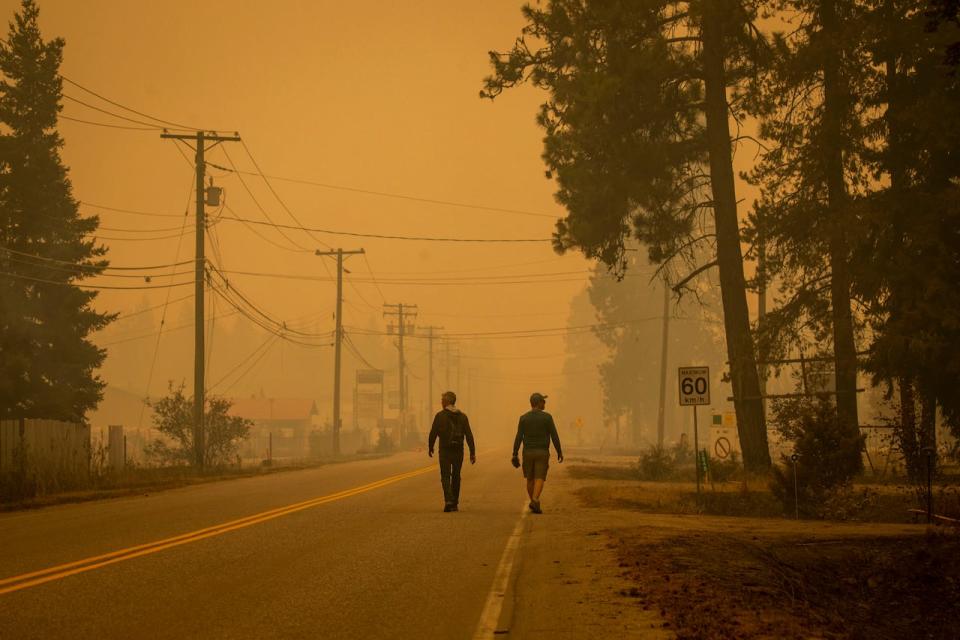Province seeks Meta's support during emergencies

The province says it's working with Meta, the company that owns the social media platforms Facebook and Instagram, to ensure important information is distributed to its users during times of emergency, such as wildfires.
Last year, the social media giant announced it was ending news availability on its platforms in Canada, after the federal government passed the Online News Act, or Bill C-18, requiring big tech companies to pay media outlets for news content that is shared on their platforms.
That news came just ahead of the worst wildfire season in the province's history — meaning people who use Facebook or Instagram for vital information weren't able to easily access information from verified news sources.
At the time, Premier David Eby had pleaded with Meta to allow access to Canadian news on its platforms so residents could more easily access critical survival messaging.
In April, during a separate announcement that included social media companies like Meta, Eby said the company has "committed to working with B.C.'s emergency management officials to help amplify official information for people in emergency situations like wildfires."
Emergency Management Minister Bowinn Ma says conversations with Meta are "just starting."
"It's incredibly important that British Columbians have access to emergency information," she said. "It's important for us to explore all opportunities available to us to bring that information to where people are, and a lot of people are on social media."

The province hopes Meta, which owns social media platforms like Facebook and Instagram, will help make sure British Columbians get essential survival information amid emergency situations this summer. (Ben Nelms/CBC)
A member of Eby's team clarified to CBC News that the province is not asking the company to end its Canadian news ban entirely — just in times of crisis.
'Serious public interest concern'
The province has endured a months-long drought, and this summer is expected to be hot and dry — the perfect conditions for intense wildfire.
Tens of thousands of British Columbians were on evacuation order or alert in 2023 as wildfires raged near their homes.
Daniel Tsai, an assistant professor at University Canada West and lawyer who specializes in business and technology, said many Canadians rely solely on social media, and Facebook in particular, to get information.
Being unable to get survival information on those platforms, he said, "can pose a serious public-interest concern in terms of people not getting the information that would protect their safety and their health."
Meta did not respond to CBC's request for comment on this story.
In a statement, federal Minister of Canadian Heritage Pascale St-Onge said Meta's ban on news in Canada and other countries is "irresponsible" and has devalued trusted news sources.
"We have been calling for Facebook to come to the table, act responsibly, and unblock news since day one," St-Onge said.
"A lack of reliable information replaced by misinformation, especially during wildfire season, was dangerous last year and could endanger more Canadians this year."
Tsai said the federal government could treat Meta like a broadcaster, so it could be regulated.
"Meta has not been co-operative and at times implied that they might just leave the country," he said.
"It's incumbent on governments to sometimes call bullies on their bluffs. And if that's the case, if money is your driving source here, then don't operate in this country. You're not welcome here if you're going to put our citizens' lives at risk."


